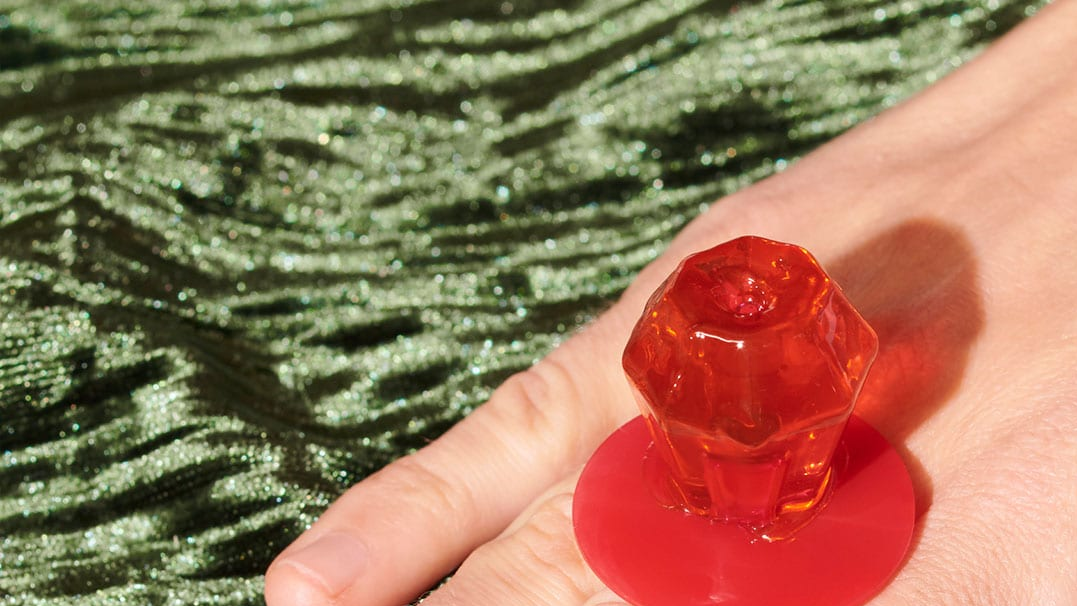On Wednesday, the Food and Drug Administration (FDA) issued an order that will ban Red No. 3, a synthetic dye, from food, drinks, and ingested drugs, in the U.S. The additive was first approved for use in 1907, however concerns about cancer-causing elements, as well as behavioral issues in children, have been building for decades.
Red No. 3 is found in cereals, candy, juice, and frozen desserts, and is responsible for the bright red color seen in products like Skittles, Trix cereal, and more. It’s also in a number of dietary supplements and drugs like cough syrups. Regardless of how widespread the additive is in products that we ingest, the FDA has long been aware that the chemical, made from petroleum, may cause harm, though the extent of that harm has been up for debate.
After a 1980s study on rats found that the animals developed tumors after exposure to the additive, the agency banned its use in cosmetics, but not food and drugs. Today, the FDA maintains that humans do not respond to the additive in the same way as rats. In Wednesday’s announcement, it asserted that rats were at greater risk, “due to a rat specific hormonal mechanism.”
It said, “Relevant exposure levels to FD&C Red No. 3 for humans are typically much lower than those that cause the effects shown in male rats. Studies in other animals and in humans did not show these effects; claims that the use of FD&C Red No. 3 in food and ingested drugs puts people at risk are not supported by the available scientific information.”
The U.S. is far from the first country to ban Red No. 3. The controversial additive has already been banned from being added to food and drinks in New Zealand, Japan, and the European Union. In the U.S., some states have already taken action on the additive, too. California banned its use in 2023, and at least 10 other states have introduced legislation to do the same.
In 2015 and 2016, some major companies vowed to take their own actions, as calls for removing artificial ingredients began to grow louder. Mars, Incorporated, General Mills, and Kellogg’s were among some of the brands that vowed to remove artificial flavors and colors from their products. However, the companies either didn’t deliver, or eventually brought back the additives when sales were negatively impacted.
The FDA’s announcement comes after the Center for Science in the Public Interest, a food safety advocacy group, called for the removal of Red No. 3 in food and drinks. The petition called for the FDA to invoke the Delaney Clause, which requires the organization to ban additives that cause cancer in humans or animals. The FDA has invoked the Delaney Clause in the past, it noted in the announcement. “For example, in 2018, the FDA revoked the authorization for certain synthetic flavors based on the Delaney Clause in response to a food additive petition.”
In addition to cancer concerns, some behavioral impacts have been examined, too. A 2021 report from the Office of Environmental Health Hazard Assessment suggested a link between Red No. 3, and increased hyperactivity in children. A 2022 review of the study noted there was “an association between synthetic food dyes and behavioral impacts in children.” The review claimed, “The current Food and Drug Administration (FDA) acceptable daily intakes are based on older studies that were not designed to assess the types of behavioral effects observed in children.”
In a news release, Ken Cook, cofounder and president of the Environmental Working Group, applauded the FDA’s decision and those who have continuously pushed the group towards banning harmful additives in food. “Today’s action by the FDA marks a monumental victory for consumer health and safety. For years, Red 3 remained in food products, despite growing evidence linking it to health problems, particularly in kids.”
Cook continued, “This ban sends a strong message that protecting the health of Americans—especially vulnerable children—must always take priority over the narrow interests of the food industry.”
According to the FDA’s announcement, “food and drugmakers will have until January 15, 2027, and January 18, 2028, respectively,” to reformulate their products without the additive.
Sarah Bregel is a writer, editor, and single mom living in Baltimore, Maryland. She’s contributed to NYMag, The Washington Post, Vice, In Style, Slate, Parents, and others. More



